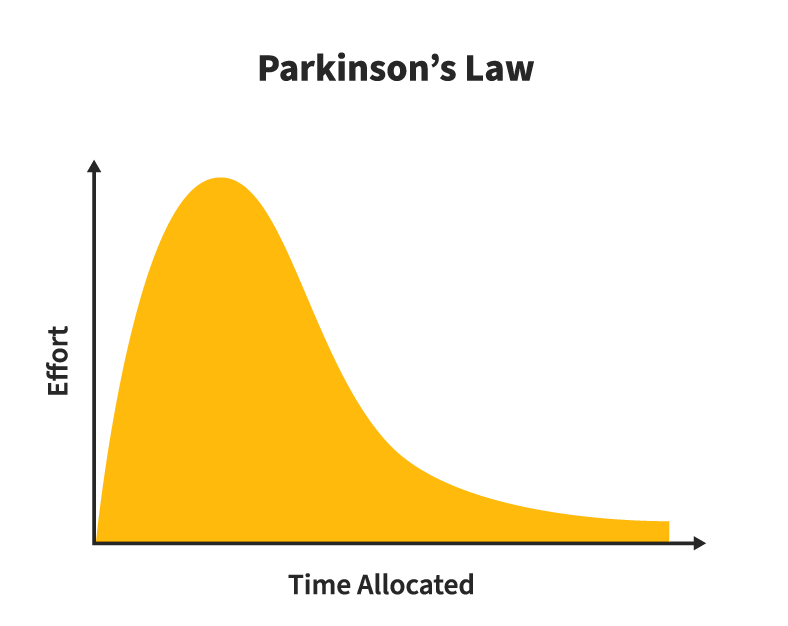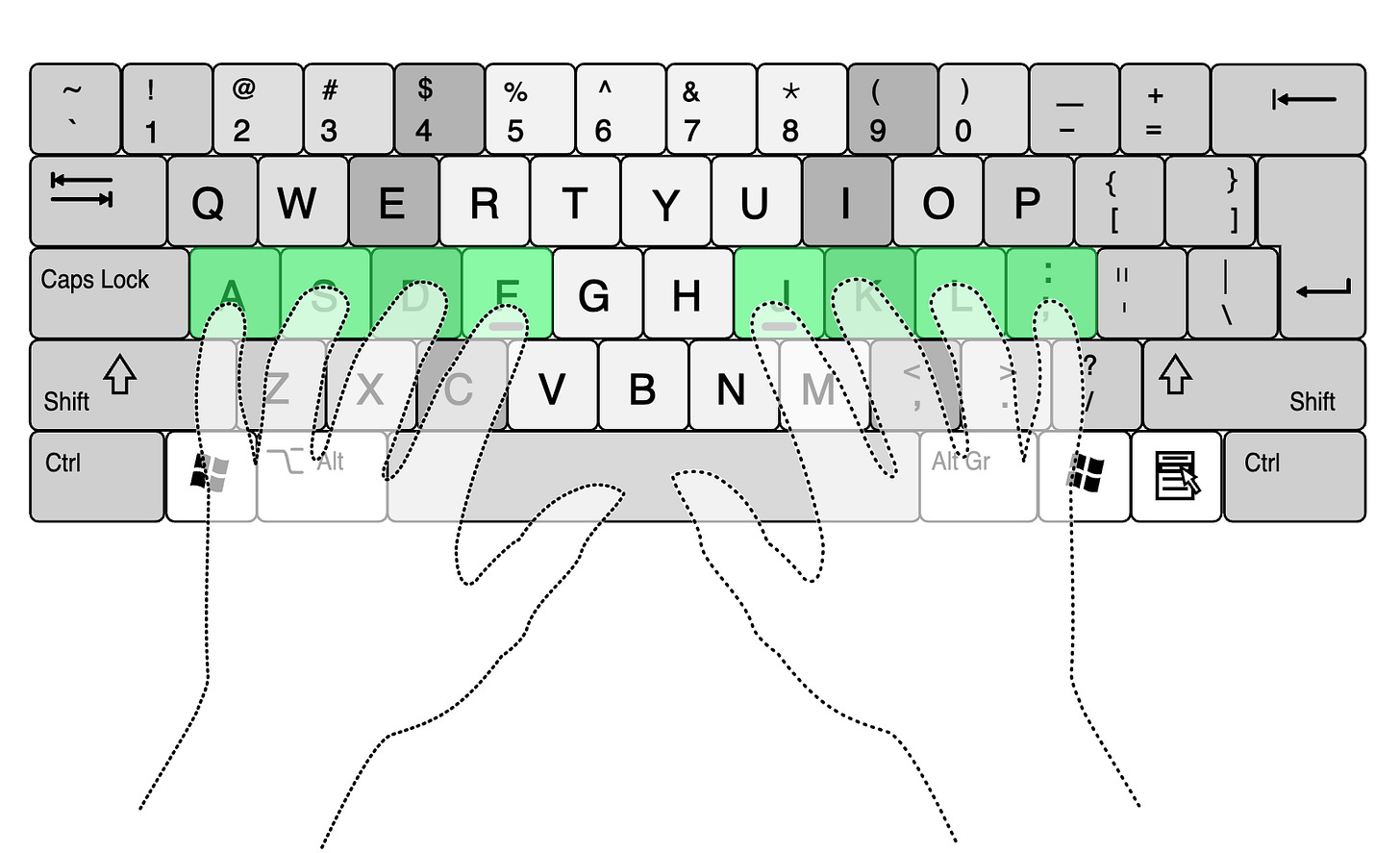Hey, it’s Bog.
I don’t know who said this or where I saw it, but I saved the screenshot:
Reading this got me thinking, and I’ve noticed a similar pattern in some people around me.
Those who seem to pick things up pretty easily early on (in school, for instance) have a much harder time doing challenging things later since they’re used to things being easy from the moment they try them.
On the other hand, there are people who, no matter what they do, don’t pick things up easily. It always requires extra energy, more hours, and effort to get to the same place as the people in the former example.
The first type start doing challenging things but give up because it’s harder than expected.
The second type don’t start doing challenging things in the first place because they know it will take a lot of effort once they do.
I think I’m the second type of person.
Most things I do I never seem to get right from the first few tries.
Take YouTube, for instance. In the beginning, it took me posting 109 times and over 10 months (~2.7 videos per week) to reach my first 1000 subscribers.
And during the first year I made 183.58 € from YouTube.
Another example is school. In school, I usually needed to put in more hours than my classmates to get the same result. Which meant that during that extra time my friends could enjoy gaming whilst I was still stuck doing my homework.
Speaking of gaming, I usually need to sink in hundreds of hours to get as good as my friends who just started playing the game a few weeks ago.
But what do both of these types of people have in common?
It’s hard for both types to do challenging things.
So this got me thinking.
What do I usually do to make doing challenging things easier?
And here are things that I came up with:
1. Trying to not think of “challenging things” as a “big deal”
Whenever I think of making a video as a "big deal" in my head, 99% of the time it ends up being a horrible video.
Some of my best performing videos were just me thinking of it as "practice" and recording something, thinking I'd delete the footage later. Or ones that I didn't even want to upload, thinking they were horrible.
So it could be useful to think of ways of how you could make the “challenging thing” be less of a monster in your head.
Thinking “play” rather than “work”; “experiment” rather than “a thing that I must make work”.
I talked about experimentation and gamifying things more in this issue of the newsletter.
2. Using deadlines to your advantage
I hate deadlines. But they work.
Every day I try to work on making YouTube videos for 1 hour. No matter what day it is. (That’s why my YouTube course is called the 1 Hour YouTuber).
And there are 2 built-in deadlines here.
The “everyday” deadline and the “1 hour” deadline. As a bonus, both of them are within my control.
The “everyday” deadline makes sure that I complete my hour every day.
And the “hour” deadline makes sure that I don’t spend the entire day working on videos. Since if I give myself the whole day, it always ends up taking the entire day.
“Work expands so as to fill the time available for its completion.” ← Parkinson's Law
So it could be useful to think of ways of how you could limit your time to do the challenging thing. Think: deadline / time limit (for example: 2 evenings). Artificial deadlines remove so many things you "could do" and push you to do something. And doing something, starting to move, is the most important thing in the beginning.
3. Try to notice the “quit impulse”
I have already quit writing this newsletter more than 5 times.
I opened YouTube in a new tab to see if there are any new videos that I’d like to watch.
I opened YouTube Studio to see the comments under my own videos.
I opened Steam to check the price of the new CS2 cases.
I went to make a second cup of coffee.
I even changed my mouse cursor midway through writing it.
All without noticing that I was doing it.
That’s what I call the “quit impulse”.
And the problem is that it’s really hard to catch yourself quitting because your brain does it automatically once it encounters a bigger challenge.
But actively trying to notice this “quit impulse” is a game changer. Once I catch myself quitting (it doesn’t happen often), I suddenly have the power to stop it.
And I always feel great after finishing a task, knowing that I’ve stopped myself from quitting at least a few times. There’s something so satisfying about not giving in to the automatic “quit” signal from your brain that makes you feel like you’re the one in control and like you’re winning.
And feeling like you’re in control and winning is a great feeling.
So it could be useful to try to notice once your brain gives you the automatic “quit impulse”. This is super hard (at least for me), so don’t punish yourself for stopping yourself from quitting once every ten or so times. Doing it once is already a huge win.
Thanks for reading 👋!
❤️ My Favorite Things
⚙️ My favorite keyboard shortcut:
Inside Karabiner-Elements (it’s an app that lets you remap keybaord keys on MacOS) I enabled this:
It’s a challenging thing I’ve been trying to do while writing this newsletter about doing challenging things.
This keyboard modification turns my h,j,k,l keys into arrow keys ←↓↑→ when I hold down the right command key on my keyboard.
Why is that useful?
I recently tried using Vim. It’s a code and text editor that uses a very different philosophy for navigating text.
Inside Vim, h,j,k,l act as arrow keys, and once you get used to using them as such, it becomes a lot easier to navigate text with these keys instead of the arrow keys. Since you don’t have to move your hand away from the home row as you’re typing to use the arrow keys.
The important words here are “once you get used to using them”, and I definitely haven’t. While writing this newsletter, I tried to navigate between all text using the h,j,k,l keys rather than my arrow keys ←↓↑→, which took 10x as long and completely broke my muscle memory and my fingers. (For some reason I just can’t get used to “h” being “up” instead of “j” being “up”.)
Once I spend a bunch more hours using them, I’m sure I’ll be able to navigate text much faster than I was able to before with arrow keys.
✍️ Quote of the Month:
The only rules and limits are those we set for ourselves. Life is neither a problem to be solved nor a game to be won. Once you realise this there’s going to be a huge weight lifted off your shoulders because there’s not gonna be a need for anymore success chasing.
From The 4-Hour Workweek.
🎬 Free Resource To Make It Unreasonable To Fail With A New YouTube Channel
🍿 My New Videos
This (simple) content creation system got me 100k subscribers












I also started using Vim after seeing a comment in your latest video! It's been fun to try something new, but it's also been difficult due to not having the same keyboard shortcuts available in other programs. Remapping keys is a good idea! Thanks 💖
Is it just me or was there no November edition. No pressure I just want to make sure your OK. Merry Christmas in 20ish days 😅